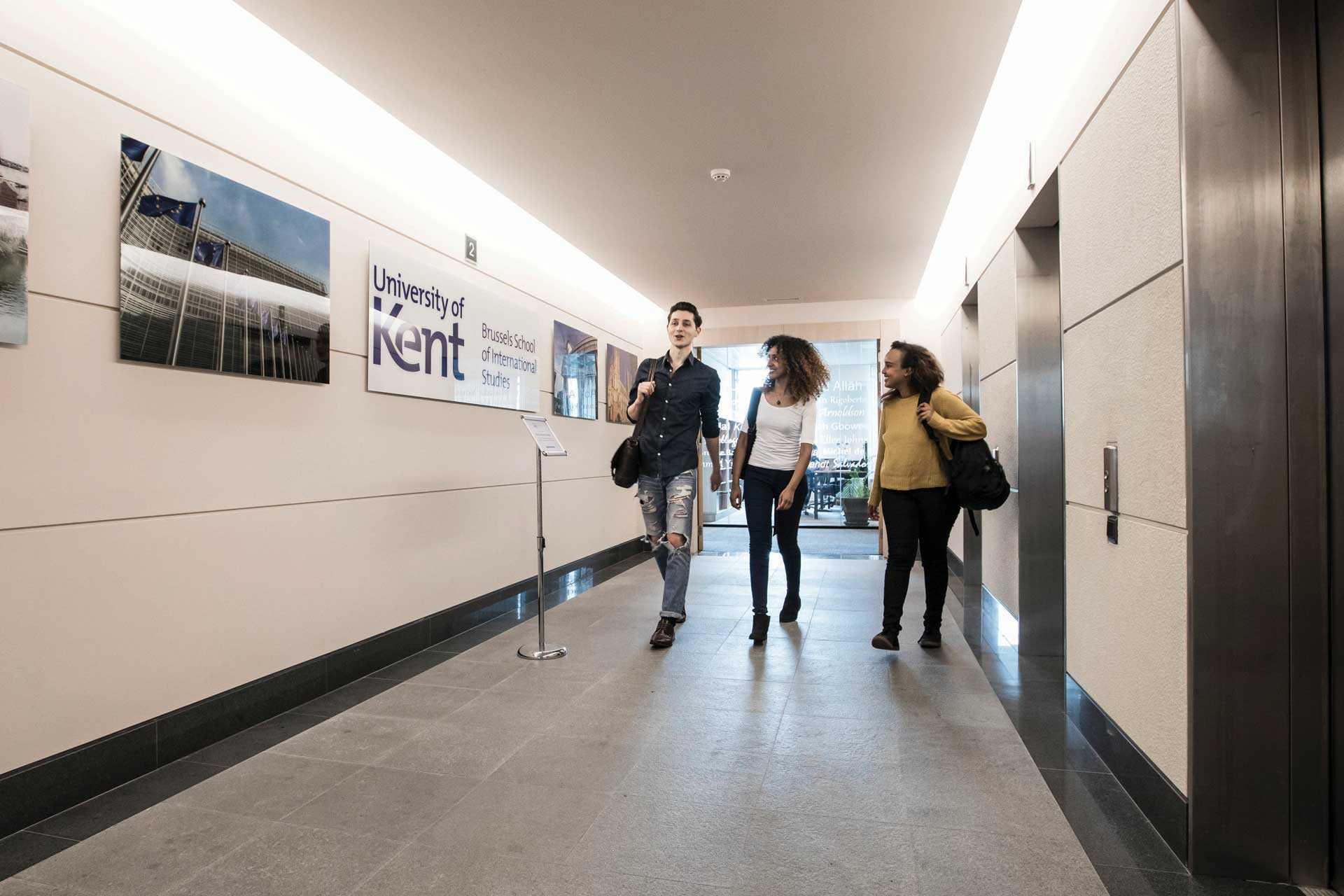This is an archived page and for reference purposes only. We are not accepting applications for this course for the 2023/24 academic year.
Please see our postgraduate course list for the upcoming academic year.
Brussels is an ideal place to study International Relations. You will find yourself studying in a city where global decisions are made on a daily basis and your access to the institutions, conferences, seminars and events enhances your understanding of the subject.
Day after day we experience what it means to live in an internationalising world. Grasping its essence, however, is all but evident. The MA in International Relations tries to grasp the complexity of international processes and to offer the necessary tools to understand its different dimensions (political, legal, economic) and the role of various actors (states, international organisations, business, etc.). The programme is built on the interaction of theory (how we approach the world), method (how we explore the world) and substance (what we know about the world). Students can choose five out of seven courses from a wide variety of electives. This allows them to assemble their personal programme, tailored to their interests and background.
The programme builds on the long tradition of the University of Kent as a leading university in the field of international relations. By offering an MA in International Relations in Brussels, we place this expertise in the unique context of a European and international capital, host to the EU and NATO. More than a context, this aspect of Brussels as hotspot of international policy-making is actively integrated into the programme and reflected in the high number of high-profile diplomats and policy-makers lecturing at BSIS.
Standard and extended versions
The MA is offered in both a standard version (90 ECTS credits) and an extended version (120 ECTS credits) and in each case students may take the programme with or without a secondary specialisation. Those on the extended version take more modules to gain extra credit.
To be awarded the standard MA (90 ECTS), you must take three modules from the list for International Relations and a further three modules from the full list of modules offered at BSIS. For the extended MA (120 ECTS), you must take four modules from the list for International Relations and a further five modules from the full list of modules offered at BSIS.
Modules
The following modules are offered to our current students on the MA International Relations programme. At BSIS, you have a wide range of optional modules to choose from and this can be within your chosen degree, or as part of a secondary specialisation (for more information on specialisations, please see below.) This list of modules is based on the current curriculum and may change year to year in response to new curriculum developments and innovation:
POLI9320 - International Relations Theory*
POLI8140 - European Foreign and Security Policy in the 21st Century
LAWS8441 - Legal Aspects of Contemporary International Problems
POLI8460 - Global Political Economy
POLI9240 - Foreign Policy Analysis
POLI9350 - Global Governance and International Organisation
Modules marked with * are compulsory.
Students may not be registered on more than 3 modules per term (full-time) or 1 or 2 modules (part-time) and each module will run in either Autumn or Spring.
On this programme you may not take more than three law modules (standard) or four law modules (extended).
Specialisations
The MA in International Relations allows you to choose secondary areas of specialisation from the range of programmes offered at BSIS. This leads to the award of an MA degree in, for example, 'International Relations with Human Rights Law'.
To include a secondary area of focus on the standard programme, you must choose three modules from the list for MA International Relations, two modules from one of the programmes listed below (your secondary area of study) and one module from the full list of modules offered at BSIS.
- with Human Rights Law
- with International Conflict and Security
- with International Development
- with International Law
- with International Migration
- with Political Strategy and Communication
- with Foreign Policy (available as a secondary specialisation only)
On both the standard and extended programme, you must also submit a dissertation on a topic in Human Rights Law and complete the methodology module Fundamentals, Dissertation and Research.
Study support
Postgraduate resources
Students have access to excellent e-library facilities online via the Templeman library in Canterbury; inter-library loans within Belgium; 50,000 online journals are also available off-campus. Students also have outstanding access to libraries in Brussels, such as at our partner universities Vrije Universiteit Brussel and Université Libre de Bruxelles, the Royal Library of Belgium, among others. The School’s resources include a dedicated selection of more than 1,000 key texbooks on the subject of international affairs and law. In addition, postgraduate research students have their own designated room with computer terminals and access to wi-fi in all areas at the Brussels centre.
Dynamic publishing culture
Staff publish regularly and widely in journals, conference proceedings and books. The Brussels School produces its own journal, The Brussels Journal of International Studies, which was founded in 2003. Details of recently published books can be found within the staff research interests section.
Global Skills Award
All students registered for a taught Master's programme are eligible to apply for a place on our Global Skills Award Programme. The programme is designed to broaden your understanding of global issues and current affairs as well as to develop personal skills which will enhance your employability.





